Competitive, highly-funded research grant awarded to Prof. Marcin Magierowski
We are pleased to announce that Prof. Marcin Magierowski received new research grant sponsored by the National Science Centre (Poland) within the frame of Sonata Bis programme.
Working title of the project (2023/50/E/NZ4/00360):
Targeted intracellular sulfide signaling as a missing key in fundamental and clinical approach to esophageal pathologies.
Budget: approx. 1 350 000 EURO. Project will be implemented in collaboration with eminent scientist from Europe and USA.
We will be recruiting new PhD candidates and Postdoctoral researchers. Stay tuned!
Brief summary:
Gastroesophageal reflux disease (GERD) as gastrointestinal (GI) pathology affects 20% of population. GERD predisposes to premalignant Barrett’s esophagus (BE), dysplasia and adenocarcinoma (EAC). Latest clinical options are invasive or burdened by side-effects, being not completely effective. But, our preliminary study, allowed us to propose here a novel approach to counteract these pathologies. We hypothesize targeted delivery of gaseous molecule, hydrogen sulfide(H2S) (using novel prodrugs) as possible therapeutic strategy.
H2S is not only a toxic gas but curiously a physiological signaling molecule modulating mitochondrial functions and persulfidation of proteins (crucial for the living organisms). Our pilot data suggests that GERD-induced esophageal depletion of H2S in esophageal mucosa predisposes to BE. Thus, we assume altered persulfidation and mitochondrial imbalance as overlooked underlying mechanisms. Of note, mitochondria are crucial compartments of our cells that are essential for maintaining our vital functions.
We aim to define the contribution of H2S-mediated proteins persulfidation and mitochondrial alterations in subsequent esophageal diseases, and to pioneer the implementation of these phenomena in preventive, therapeutic or diagnostic manner. We will explore the impact of impaired mitochondrial H2S biosynthesis on persulfidation and mito-homeostasis in BE pathogenesis. Finally, we will prove pharmacological capacity of novel mitochondria-targeted, disease-specific H2S-prodrugs, due to quantitative and qualitative footprint on mito-proteome persulfidation and mito-functions. Complementary experimental models, along with clinical biopsies will allow us to gain mechanistic and translational approach.
Altogether, the expected outcome is to define the contribution of H2S-mediated pathway-specific sulfhydration and mitochondrial functions in pathogenesis of esophageal disorders, rearranging current understanding of fundamental GI pathophysiology. We will prove that restoration or modulation of these targets by novel targeted H2S delivery systems counteract these pathologies, challenging current clinical therapeutic, preventive and diagnostic strategies.
https://www.cm-uj.krakow.pl/index.php/collegium/aktualnosc/3313

